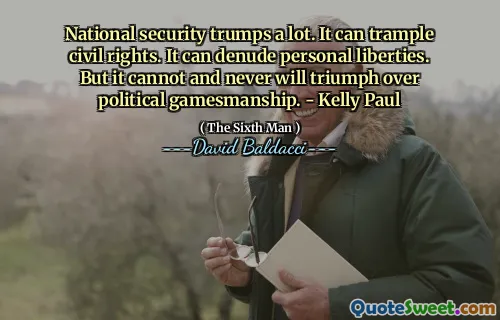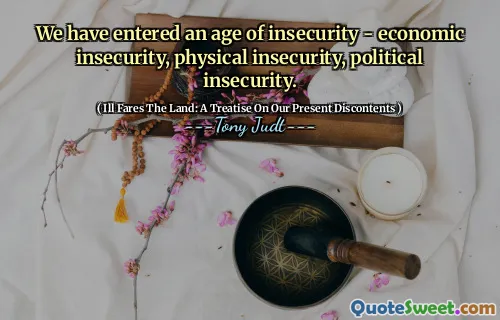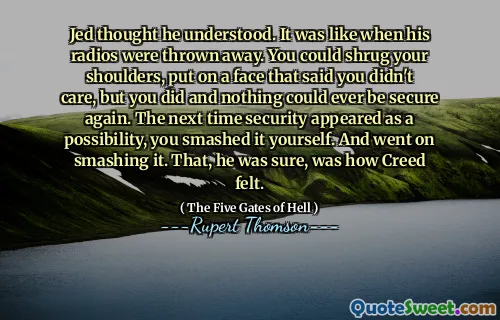
Security depends not so much upon how much you have as upon how much you can do without.
This quote highlights a profound principle of security rooted in self-sufficiency and restraint. In a world often driven by material wealth and possessions, the idea that true security comes from doing without suggests that reliance on external assets can be a vulnerability. When individuals or nations accumulate excess, they may become more susceptible to loss, theft, or economic destabilization. Conversely, cultivating the ability to live comfortably without excessive dependencies fosters resilience and independence. This philosophy resonates with minimalist principles, emphasizing that reducing reliance on material goods can lead to a more stable and secure life. It encourages self-control and discipline, as true strength isn't measured by how much one owns but by how well one can adapt and thrive with less. Moreover, this mindset promotes a focus on internal resources—skills, relationships, and inner strength—that are less vulnerable than physical possessions. Living with less not only simplifies life but also reduces the risks associated with possessing and safeguarding things. In contemporary society, where consumerism often leads to overextension and insecurity, this perspective offers a refreshing reminder that simplicity and self-restraint can be powerful tools for personal and economic security. It invites us to reflect on our dependencies and consider whether our sense of security is genuine or merely superficial. Ultimately, living with less can lead to a more meaningful, secure, and autonomous life, less dependent on the fleeting nature of material possessions.











